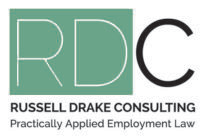When do you get one done?
Employment Case Law reinforces that employers should ‘not be too hasty to rush straight into a formal disciplinary process’ as this can escalate a situation beyond the status it requires too quickly. On this basis, what options does the employer have open to them to determine whether formal disciplinary action is warranted or not?
Increasingly, where an employer is presented with a situation that may result in formal disciplinary action, particularly of a potential serious misconduct level, we are encouraging clients to consider implementing a preliminary investigation process. This would in no way eliminate the need to initiate a more formal external or independent investigation for matters such as; significant employee complaints related to theft/fraud, bullying, harassment or abuse of some form. However, where the employer is faced with concerns or complaints of a less substantial nature, significant background information may need to be obtained within a relatively short period of time in order to determine what formal course of action is then appropriate.
The essence of the preliminary investigation process is to ensure that the employee at the center of the matter is aware that concerns exist, that they are provided with sufficient details to enable them to provide an informed response, and that they are aware that, subject to consideration of their response, a decision may then be made as to whether more formal disciplinary action may be implemented or not.
The benefits of implementing such processes are that the gathering of information to support a potential formal discipline process can be advanced quickly, and for the completely opposite reason; if the employee has a logical explanation to rebut the concerns, a decision can occur quickly avoiding the employee the usual stress and anxiety associated with a formal disciplinary process, if this is not then required.
However, it is important to not fall into the trap of thinking that, just because this is not a formal investigation, the usual procedural requirement duties do not apply. As any process that has the potential to impact on an employee’s terms and conditions of employment (including the issuing of a formal written warning or potential dismissal) can result in a personal grievance claim, all employment law procedural fairness obligations must be evidenced within your preliminary investigation process.
Traditionally, employers faced with addressing a complaint or significant concerns about an employee have embarked on a process where they have gathered all information that they believe to be relevant prior to even advising the employee that a concern exists. Often, the first time that the employee had become aware of this was when they were in receipt of a request to attend a formal disciplinary meeting that may lead to the termination of their employment. This has often placed an employee on the back foot, and without a chance to provide logical explanations that may have avoided any escalation of events.
In such cases, given that the orientation of employee representatives is to now raise personal grievances considerably early in the process, subjecting an employee to a formal disciplinary process when this is later found to be unwarranted, may then result in some form of ‘resolution’ (often including a demand for compensation for avoidable stress and anxiety) being required.
However, to the contrary, we have also seen situations where, solely on the basis of being advised that a preliminary investigation is to be implemented, an employee who clearly knows that they are guilty of the matters being tabled, elects to resign prior to the decision regarding any formal disciplinary process having to be made. Therefore, subject to good process being applied, the matter may be resolved without undue stress for both parties to the employment relationship.
If you encounter a situation where you are required to weight up whether a formal investigation is required, whether there are sufficient grounds to go straight to a formal disciplinary process or whether a preliminary investigation is more appropriate, please feel free to call us directly to seek advice regarding the best next steps.

